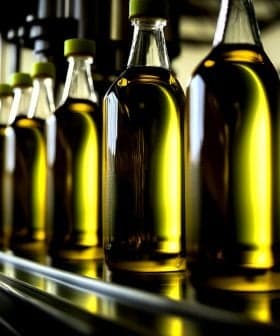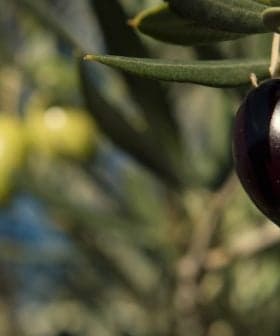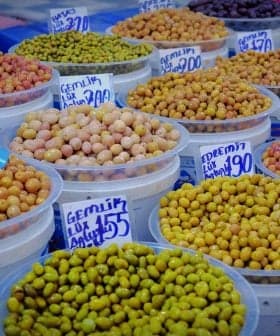Producers Puzzled by Turkish Ban on Bulk Olive Oil Exports

Turkey has imposed a ban on the export of olive oil in bulk until October 31, 2021, due to concerns related to the Covid-19 pandemic and potential inflation. However, olive oil packaged in bottles or barrels can still be exported, and taxes on imported sunflower, canola, and safflower oil have been waived until July 1 to protect domestic consumers.
Exports of olive oil in bulk have been put on hold in Turkey.
After a request from the country’s Ministry of Agriculture and Forestry, the Ministry of Commerce imposed a ban on olive oil exports in bulk effective until October 31, 2021, on the grounds of the uncertainty caused by the Covid-19 pandemic and fears of inflation in the country’s economy.
Approximately 55 percent of our exports are in bulk. Under these conditions, we do not see the ban on the export of bulk olive oil as the right move.
However, olive oil packaged in bottles or barrels is free to be exported as usual. Furthermore, taxes imposed on imported sunflower, canola and safflower oil have been waived in the country until July 1.
“At the moment, everybody is complaining about uncertainty,” said Harun Seçkin, the head of the Food and Control department of the Ministry of Agriculture and Forestry of Turkey. “We do not know what will happen tomorrow. Some countries, especially in terms of oil, buy more than their needs.”
See Also:Trade News“In this framework, we thought that a restriction on the export of our olive oil in bulk would be appropriate,” he added. “There is no problem in exporting packaged and bottled [olive oil]. It is not right for us to export the oil we have in bulk in this uncertain environment.”
Seçkin also said that the price of sunflower oil is almost equal to the price of olive oil. He also maintained that the export ban aims to prevent product shortages and secure reasonable prices for domestic consumers.
“It is also a decision in favor of the consumer,” he said. “It protects the consumer in terms of both price and product availability.”
Turkey imposed a similar ban back in December 2001, which had restricted exports of olive oil in bulk until the end of October 2002 and had caused controversy in the sector.
The curb put on Turkish bulk olive oil exports came in a season where olive oil production is expected to reach 220,000 tons, according to data released by the European Commission in March.
The Aegean Olive Oil Exporters Association (EZZIB) of Turkey rejected the export prohibition and said there is an adequate quantity of Turkish olive oil to be exported.
“Exports [of olive oil] are at low levels compared to past seasons,” a written statement of the association read. “Turkey’s annual domestic consumption is 140,000 tons, and we have around 60,000 to 70,000 tons that can be exported.”
“Approximately 55 percent of our exports are in bulk,” the EZZIB added. “Under these conditions, we do not see the ban on the export of bulk olive oil as the right move.”
See Also:Olive Oil Prices Hit Two-Year High in SpainIn the last two harvesting seasons, more than half of the exports of Turkish olive oil were in bulk. In the current 2020/21 season, 16,653 tons of olive oil were exported from November 1 until February 28, of which 47 percent was shipped abroad in bulk, four percent in barrels and the remaining 49 percent as bottled olive oil.
Exporters also claimed that the ban in the middle of the season could cause significant economic damage to Turkish olive oil producers and exporters.
“We expect a formula from the two ministries so that the bulk olive oil export ban does not harm the producer and exporter,” Davut Er, the chairman of EZZIB, said. “The ban on bulk exports of olive oil of Turkey advances the damage to hundreds of millions of dollars.”
The exporters rejected the justification they received from the government that “olive oil prices will increase food inflation” and accused the market chains of the country of convincing the government to impose the ban to increase the available quantities of olive oil and sell at lower prices.
“In my opinion, this decision has affected the strategies of exporters and producers,” Suzan Kantarci, an NYIOOC World Olive Oil Competition panel member from Turkey, told Olive Oil Times.
She said that the ban might lead producers to focus more on quality and cause them to enter more competitions in an effort to make their individually-packaged products stand out.
“They may plan to enter the American market with NYIOOC competition medals on their boxed packages,” Kantarci added.
For the 2021 NYIOOC there are 87 entries from Turkey, more than double the submissions from the country last year, according to the competition’s organizers.
See Also:The Best Olive Oils from TurkeyThe restriction on exports also baffled olive oil producers in the country, who tried to connect the dots and explain the ban.
“I think one can only speculate about the reasons,” one producer told Olive Oil Times. “The olive harvest in Turkey was normal and the prices were not high either. One possible reason could be the rising inflation in Turkey.”
“The government may be trying to fight inflation by keeping food in the country,” the producer added. “This is also supported by the fact that not only olive oil but many other edible oils are affected by this export ban.”









